#going meta
Text
This is your brain on fraud apologetics
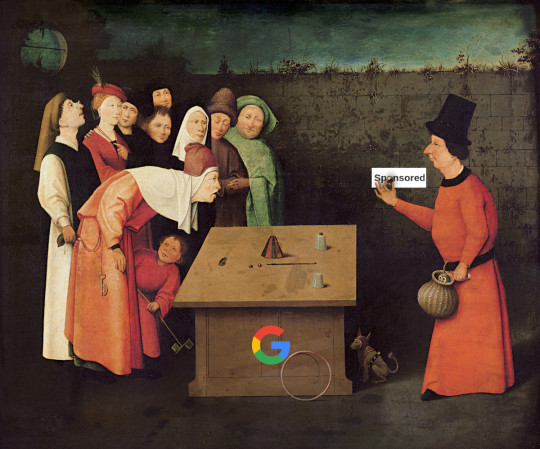
In 1998, two Stanford students published a paper in Computer Networks entitled “The Anatomy of a Large-Scale Hypertextual Web Search Engine,” in which they wrote, “Advertising funded search engines will be inherently biased towards the advertisers and away from the needs of consumers.”
https://research.google/pubs/pub334/
If you’d like an essay-formatted version of this post to read or share, here’s a link to it on pluralistic.net, my surveillance-free, ad-free, tracker-free blog:
https://pluralistic.net/2023/02/24/passive-income/#swiss-cheese-security
The co-authors were Lawrence Page and Sergey Brin, and the “large-scale hypertextual web search-engine” they were describing was their new project, which they called “Google.” They were 100% correct — prescient, even!
On Wednesday night, a friend came over to watch some TV with us. We ordered out. We got scammed. We searched for a great local Thai place we like called Kiin and clicked a sponsored link for a Wix site called “Kiinthaila.com.” We should have clicked the third link down (kiinthaiburbank.com).
We got scammed. The Wix site was a lookalike for Kiin Thai, which marked up their prices by 15% and relayed the order to our local, mom-and-pop, one-branch restaurant. The restaurant knew it, too — they called us and told us they were canceling the order, and said we could still come get our food, but we’d have to call Amex to reverse the charge.
As it turned out, the scammers double-billed us for our order. I called Amex, who advised us to call back in a couple days when the charge posted to cancel it — in other words, they were treating it as a regular customer dispute, and not a systemic, widespread fraud (there’s no way this scammer is just doing this for one restaurant).
In the grand scheme of things, this is a minor hassle, but boy, it’s haunting to watch the quarter-century old prophecy of Brin and Page coming true. Search Google for carpenters, plumbers, gas-stations, locksmiths, concert tickets, entry visas, jobs at the US Post Office or (not making this up) tech support for Google products, and the top result will be a paid ad for a scam. Sometimes it’s several of the top ads.
This kind of “intermediation” business is actually revered in business-schools. As Douglas Rushkoff has written, the modern business wisdom reveres “going meta” — not doing anything useful, but rather, creating a chokepoint between people who do useful things and people who want to pay for those things, and squatting there, collecting rent:
https://rushkoff.medium.com/going-meta-d42c6a09225e
It’s the ultimate passive income/rise and grind side-hustle: It wouldn’t surprise me in the least to discover a whole festering nest of creeps on Tiktok talking about how they pay Mechanical Turks to produce these lookalike sites at scale.
This mindset is so pervasive that people running companies with billions in revenue and massive hoards of venture capital run exactly the same scam. During lockdown, companies like Doordash, Grubhub and Uber Eats stood up predatory lookalike websites for local restaurants, without their consent, and played monster-in-the-middle, tricking diners into ordering through them:
https://pluralistic.net/2020/09/19/we-are-beautiful/#man-in-the-middle
These delivery app companies were playing a classic enshittification game: first they directed surpluses to customers to lock them in (heavily discounting food), then they directed surplus to restaurants (preferential search results, free delivery, low commissions) — then, having locked in both consumers and producers, they harvested the surplus for themselves.
Today, delivery apps charge massive premiums to both eaters and restaurants, load up every order with junk fees, and clone the most successful restaurants out of ghost kitchens — shipping containers in parking lots crammed with low-waged workers cranking out orders for 15 different fake “virtual restaurants”:
https://pluralistic.net/2020/12/01/autophagic-buckeyes/#subsidized-autophagia
Delivery apps speedran the enshittification cycle, but Google took a slower path to get there. The company has locked in billions of users (e.g. by paying billions to be the default search on Safari and Firefox and using legal bullying to block third party Android device-makers from pre-installing browsers other than Chrome). For years, it’s been leveraging our lock-in to prey on small businesses, getting them to set up Google Business Profiles.
These profiles are supposed to help Google distinguish between real sellers and scammers. But Kiin Thai has a Google Business Profile, and searching for “kiin thai burbank” brings up a “Knowledge Panel” with the correct website address — on a page that is headed with a link to a scam website for the same business. Google, in other words, has everything it needs to flag lookalike sites and confirm them with their registered owners. It would cost Google money to do this — engineer-time to build and maintain the system, content moderator time to manually check flagged listings, and lost ad-revenue from scammers — but letting the scams flourish makes Google money, at the expense of Google users and Google business customers.
Now, Google has an answer for this: they tell merchants who are being impersonated by ad-buying scammers that all they need to do is outbid them for the top ad-spot. This is a common approach — Amazon has a $31b/year “ad business” that’s mostly its own platform sellers bidding against each other to show you fake results for your query. The first five screens of Amazon search results are 50% ads:
https://pluralistic.net/2022/11/28/enshittification/#relentless-payola
This is “going meta,” so naturally, Meta is doing it too: Facebook and Instagram have announced a $12/month “verification” badge that will let you report impersonation and tweak the algorithm to make it more likely that the posts you make are shown to the people who explicitly asked to see them:
https://www.vox.com/recode/2023/2/21/23609375/meta-verified-twitter-blue-checkmark-badge-instagram-facebook
The corollary of this, of course, is that if you don’t pay, they won’t police your impersonators, and they won’t show your posts to the people who asked to see them. This is pure enshittification — the surplus from users and business customers is harvested for the benefit of the platform owners:
https://pluralistic.net/2023/01/21/potemkin-ai/#hey-guys
The idea that merchants should master the platforms as a means of keeping us safe from their impersonators is a hollow joke. For one thing, the rules change all the time, as the platforms endlessly twiddle the knobs that determine what gets shown to whom:
https://doctorow.medium.com/twiddler-1b5c9690cce6
And they refuse to tell anyone what the rules are, because if they told you what the rules were, you’d be able to bypass them. Content moderation is the only infosec domain where “security through obscurity” doesn’t get laughed out of the room:
https://doctorow.medium.com/como-is-infosec-307f87004563
Worse: the one thing the platforms do hunt down and exterminate with extreme prejudice is anything that users or business-customers use to twiddle back — add-ons and plugins and jailbreaks that override their poor choices with better ones:
https://www.theverge.com/2022/9/29/23378541/the-og-app-instagram-clone-pulled-from-app-store
As I was submitting complaints about the fake Kiin scam-site (and Amex’s handling of my fraud call) to the FTC, the California Attorney General, the Consumer Finance Protection Bureau and Wix, I wrote a little Twitter thread about what a gross scam this is:
https://twitter.com/doctorow/status/1628948906657878016
The thread got more than two million reads and got picked up by Hacker News and other sites. While most of the responses evinced solidarity and frustration and recounted similar incidents in other domains, a significant plurality of the replies were scam apologetics — messages from people who wanted to explain why this wasn’t a problem after all.
The most common of these was victim-blaming: “you should have used an adblocker” or “never click the sponsored link.” Of course, I do use an ad-blocker — but this order was placed with a mobile browser, after an absentminded query into the Google search-box permanently placed on the home screen, which opens results in Chrome (where I don’t have an ad-blocker, so I can see material behind an ad-blocker-blocker), not Firefox (which does have an ad-blocker).
Now, I also have a PiHole on my home LAN, which blocks most ads even in a default browser — but earlier this day, I’d been on a public wifi network that was erroneously blocking a website (the always excellent superpunch.net) so I’d turned my wifi off, which meant the connection came over my phone’s 5G connection, bypassing the PiHole:
https://pluralistic.net/2022/04/28/shut-yer-pi-hole/
“Don’t click a sponsored link” — well, the irony here is that if you habitually use a browser with an ad-blocker, and you backstop it with a PiHole, you never see sponsored links, so it’s easy to miss the tiny “Sponsored” notification beside the search result. That goes double if you’re relaxing with a dinner guest on the sofa and ordering dinner while chatting.
There’s a name for this kind of security failure: the Swiss Cheese Model. We all have multiple defenses (in my case: foreknowledge of Google’s ad-scam problem, an ad-blocker in my browser, LAN-wide ad sinkholing). We also have multiple vulnerabilities (in my case: forgetting I was on 5G, being distracted by conversation, using a mobile device with a permanent insecure search bar on the homescreen, and being so accustomed to ad-blocked results that I got out of the habit of checking whether a result was an ad).
If you think you aren’t vulnerable to scams, you’re wrong — and your confidence in your invulnerability actually increases your risk. This isn’t the first time I’ve been scammed, and it won’t be the last — and every time, it’s been a Swiss Cheese failure, where all the holes in all my defenses lined up for a brief instant and left me vulnerable:
https://locusmag.com/2010/05/cory-doctorow-persistence-pays-parasites/
Other apologetics: “just call the restaurant rather than using its website.” Look, I know the people who say this don’t think I have a time-machine I can use to travel back to the 1980s and retrieve a Yellow Pages, but it’s hard not to snark at them, just the same. Scammers don’t just set up fake websites for your local businesses — they staff them with fake call-centers, too. The same search that takes you to a fake website will also take you to a fake phone number.
Finally, there’s “What do you expect Google to do? They can’t possibly detect this kind of scam.” But they can. Indeed, they are better situated to discover these scams than anyone else, because they have their business profiles, with verified contact information for the merchants being impersonated. When they get an ad that seems to be for the same business but to a different website, they could interrupt the ad process to confirm it with their verified contact info.
Instead, they choose to avoid the expense, and pocket the ad revenue. If a company promises to “to organize the world’s information and make it universally accessible and useful,” I think we have the right to demand these kinds of basic countermeasures:
https://www.google.com/search/howsearchworks/our-approach/
The same goes for Amex: when a merchant is scamming customers, they shouldn’t treat complaints as “chargebacks” — they should treat them as reports of a crime in progress. Amex has the bird’s eye view of their transaction flow and when a customer reports a scam, they can backtrack it to see if the same scammer is doing this with other merchants — but the credit card companies make money by not chasing down fraud:
https://www.buzzfeednews.com/article/rosalindadams/mastercard-visa-fraud
Wix also has platform-scale analytics that they could use to detect and interdict this kind of fraud — when a scammer creates a hundred lookalike websites for restaurants and uses Wix’s merchant services to process payments for them, that could trigger human review — but it didn’t.
Where do all of these apologetics come from? Why are people so eager to leap to the defense of scammers and their adtech and fintech enablers? Why is there such an impulse to victim-blame?
I think it’s fear: in their hearts, people — especially techies — know that they, too, are vulnerable to these ripoffs, but they don’t want to admit it. They want to convince themselves that the person who got scammed made an easily avoidable mistake, and that they themselves will never make a similar mistake.
This is doubly true for readerships on tech-heavy forums like Twitter or (especially) Hacker News. These readers know just how many vulnerabilities there are — how many holes are in their Swiss cheese — and they are also overexposed to rise-and-grind/passive income rhetoric.
This produces a powerful cognitive dissonance: “If all the ‘entrepreneurs’ I worship are just laying traps for the unwary, and if I am sometimes unwary, then I’m cheering on the authors of my future enduring misery.” The only way to resolve this dissonance — short of re-evaluating your view of platform capitalism or questioning your own immunity to scams — is to blame the victim.
The median Hacker News reader has to somehow resolve the tension between “just install an adblocker” and “Chrome’s extension sandbox is a dumpster fire and it’s basically impossible to know whether any add-on you install can steal every keystroke and all your other data”:
https://mattfrisbie.substack.com/p/spy-chrome-extension
In my Twitter thread, I called this “the worst of all possible timelines.” Everything we do is mediated by gigantic, surveillant monopolists that spy on us comprehensively from asshole to appetite — but none of them, not a 20th century payment giant nor a 21st century search giant — can bestir itself to use that data to keep us safe from scams.
Next Thu (Mar 2) I'll be in Brussels for Antitrust, Regulation and the Political Economy, along with a who's-who of European and US trustbusters. It's livestreamed, and both in-person and virtual attendance are free:
https://www.brusselsconference.com/registration
On Fri (Mar 3), I'll be in Graz for the Elevate Festival:
https://elevate.at/diskurs/programm/event/e23doctorow/
[Image ID: A modified version of Hieronymus Bosch's painting 'The Conjurer,' which depicts a scam artist playing a shell-game for a group of gawking rubes. The image has been modified so that the scam artist's table has a Google logo and the pea he is triumphantly holding aloft bears the 'Sponsored' wordmark that appears alongside Google search results.]
#pluralistic#victim blaming#fraud#going meta#douglas rushkoff#ad-tech#local search#wix#amex#thai food#business#rent-seeking#entrepreneurship#passive income#chokepoint capitalism#platform lawyers
2K notes
·
View notes
Text
winning moment

#pluralistic#victim blaming#fraud#going meta#douglas rushkoff#ad-tech#local search#wix#amex#thai food#business#rent-seeking#entrepreneurship#passive income#chokepoint capitalism#platform lawyers#relevant#late stage capitalism#capitalism#communism#socialism#anarchism#economics#home values#rent#landlords#vampires#making money#making money online#make money with affiliate marketing
11 notes
·
View notes
Text
I'm not the first to mention this, but one bit that I thought was really clever in Steven Universe is the ways in which the show subtly justifies the cartoonism of the principle cast always wearing the same outfit for ease-of-animation purposes. The gems are a gimme in that they're all hardlight-projections, and even before that's solidified as a plot point they're otherworldly and superheroic enough that you don't really think to question it. But Steven canonically just owns hundreds and hundreds of those star shirts, which are leftover merchandise from his father's fizzled-out career as a rock star. Into which you can read a whole bunch of other stuff if you really want to, right? And I do want to. It's reflective of Greg's misplaced optimism that he got hundreds of those made in the first place, and it's a benign but visible example of how Steven's life is shaped by the knock-on effects of decisions his parents made before he was even alive. He's got his mother's superpowers and he's wearing his father's shirts.
#steven universe#steven universe analysis#greg universe#thoughts#meta#su#contrast Connie who actually does have a range of diverse outfits#and tastes in outfits which evolve over the show!#because she's part of Steven's Universe#but she has somewhere to go home to
28K notes
·
View notes
Text
Gestalt in my kinesiology practice
Gestalt is not new, and it can jelp you to resolve issues with stress management in a different way.
Note-to-Self: feb 15, 2024
Not long ago I stumbled over this phenomenon again, called: Gestalt. It was a hot topic in psychology back then in the sixties.As I think about it now, I see possibilities to give this work a place in my practice.
My practice predominantly reflects my encounters with Three in One Concepts, where kinesiology is deeply intertwined with NLP techniques and the inherent…
View On WordPress
0 notes
Text
crowley must have known that aziraphale was also in love with him, he tidied the bookshop, he was planning on taking him to the Ritz after his confession, he had their song queued in the car these are not acts of someone who wasn't sure what the outcome will be.
which makes it so much more painful that he still confessed his love for aziraphale with tears in his eyes and on the verge of a full blown panic attack, he left saying "don't bother" but he still waited by his car til the elevator doors closed. all because

#alex says things#I’m going to jump off a cliff btw#good omens#ineffable husbands#good omens season 2#aziraphale#crowley#aziracrow#good omens meta
22K notes
·
View notes
Text

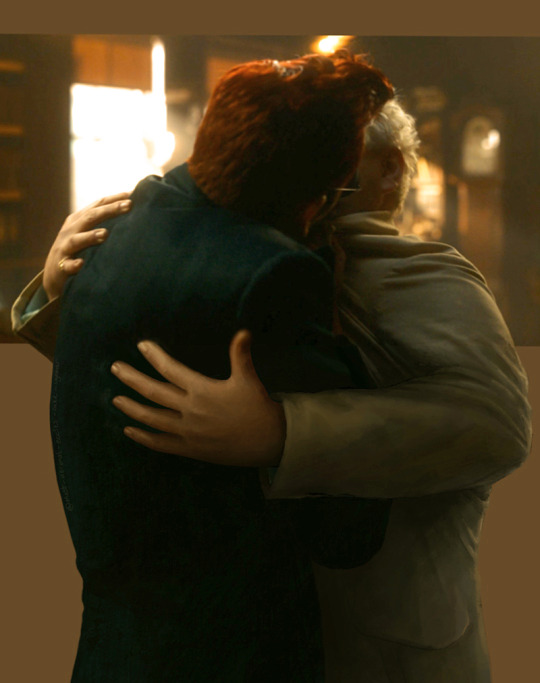
The products of trying to recreate what was going on outside the frame during the kiss. (for ENTIRELY SCIENTIFIC purposes)
@actual-changeling altered my whole outlook on life with this post about Aziraphale's left hand (I'd only been looking at his right hand) and I couldn't stop thinking about it, so I painted the rest of the fucking owl (and his bf).
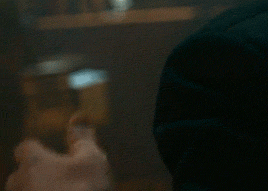
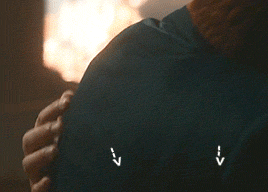
so normal about this
#good omens fanart#ineffable fanart#crOWLey#aziraphale#good omens 2#good omens#lord gaiman stokes the fires of our creativity#bless also michael sheen and david tennant#i think I’ve earned my eye dropper tool merit badge#now I can go back to sobbing and writing the aziraphale meta#good omens s2e6#aziracrow#crowley x aziraphale#good omens 2 spoilers#go2 spoilers#good omens spoilers
19K notes
·
View notes
Text
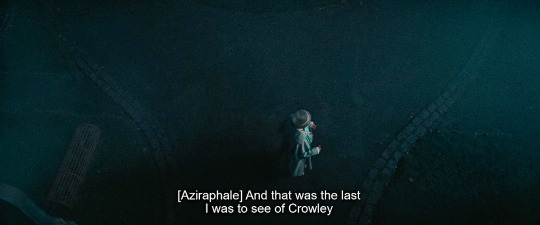
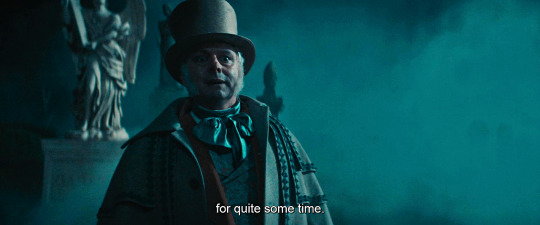
The fact that Aziraphale emerges from this flashback
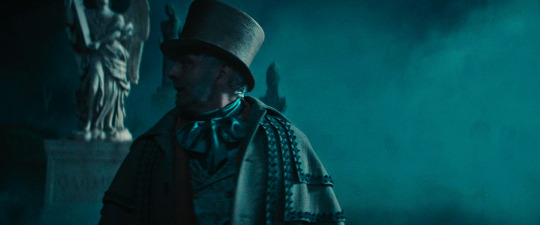
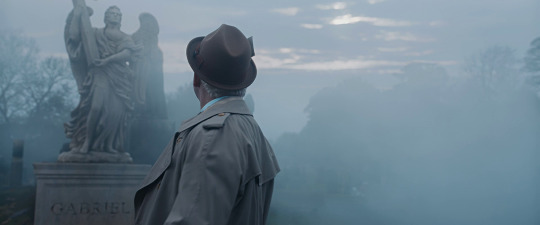
Makes this face

and then with a ginormous gap on the right side of the screen, proceeds to be like "I must call Crowley right now immediately."
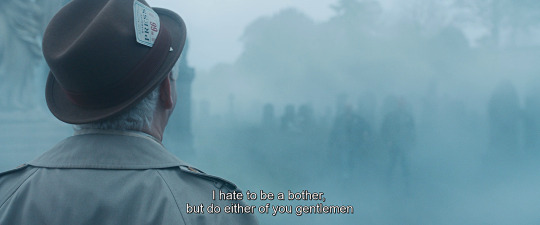
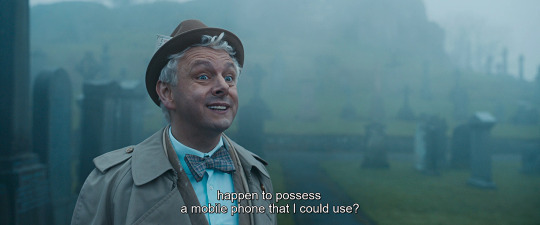
#I believe that Aziraphale in s2 is just as worried as Crowley is#he's just shoving it as far as possible under his little hat#good omens 2#v watches good omens#Aziraphale#I Know Where I'm Going#The Resurrectionists#i am this close to analyzing the screen composition during their phonecall because it's. interesting.#started thinking about this scene when they mentioned changing the weather based on Aziraphale's mood#good omens meta#more in the notes
11K notes
·
View notes
Text
I get that the bookshop fire was traumatic for Crowley because he thought he lost Aziraphale.

I keep seeing people say they want Aziraphale to know what it would feel like to lose Crowley, but I'm pretty sure my eyes weren't the only ones open when this happened...
Right?

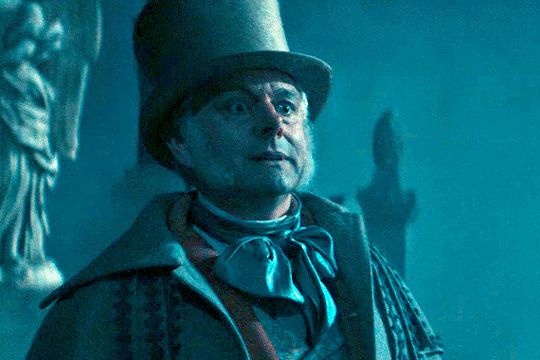
"And that was the last I was to see of Crowley for some time."
Aziraphale has lost Crowley. To Hell.
He could do nothing to stop what happened in Edinburgh, and I can't imagine that he didn't fear he'd lost Crowley for good here.
Aziraphale has experienced more heartbreak than some fans care to even acknowledge. He exists in constant fear of losing Crowley to Hell again. AGAIN.
We saw Aziraphale save Crowley from Hell in 1941 with the human magic trick he used on Furfur.
Aziraphale was the one sitting in the bathtub of holy water after the Notpocalypse, knowing this was the reason he'd been so scared to hand Crowley his own thermos of holy water in the first place.
He's lost Crowley to Hell before and he will do anything to prevent it from happening again.
That's the impact Edinburgh had on Aziraphale. This is the impact that losing Crowley had on Aziraphale.
#good omens#good omens meta#aziraphale#crowley#ineffable spouses#aziraphale defense squad#stop underestimating this badass angel#he's going to make the metatron regret the day he separated aziraphale from crowley
5K notes
·
View notes
Text
I think what's so interesting about Gideon as a narrator at the anniversary dinner is the fact that there's clearly tensions that she's just not picking up on because she's only there to eat a dessert.
But these people are all the immensely powerful leaders of the Houses and consider themselves to be in competition for literal godlike powers and the favour of the emperor.
There's so many little snippets that are potentially intriguing: why is Teacher trying to prime the Ninth to consider the Fifth a threat? Why are the Third and the Sixth "sizing each other up like prizefighters"? The Fifth absolutely knew what they were doing when they sat the teen heads of the opposing cults near each other.
Through Gideon's lens, Magnus' speech is a little awkward jokey thing. But...the seneschal of the House that is known to be actively trying to absorb another House is saying it's such a shame they're all so remote from each other and what do they all have in common (and it's so quiet you "could have heard a hair flutter to the floor") - that had to feel a bit different to people who aren't Gideon.
Palamedes' is dissecting the meaning of "Master Warden" and at one point compares it to a prison warden. 'Dulcinea' asking about whether Magnus and Abigail have children is perhaps less small talk and rather more pointedly political. Harrow's apparently stilted conversation with Protesilaus is clearly her actually probing his limitations like he's a bad Chat GPT-run chatbot.
And then 'Dulcinea' tells Gideon she liked the dinner because it was "useful". In her typical "I never lied to you" way, Cyth wasn't lying when she said Abigail had to die because of her hobby - Abigail Pent let loose on the Facility would have risked blowing Cyth's cover sky high. But what does a Canaan House look like where after the dinner party, the Fifth go down to the facility, get a key, and survive to continue their 'the Houses are going to get along or else' agenda? We've seen Fifth House soft power on a smaller scale in HTN: and it looks like inviting a teenager round for coffee, lulling her into a false sense of security with small talk, and then physically preventing her from leaving the room until she does what you want, while smiling the entire time. A series of little coffee chats could probably have led to a lot of cooperation in Canaan House, one way or another.
Gideon jokes about Silas marrying Ianthe because of their similar colour pallete, but it does raise the fact that there seems to be some tension around the Third, its succession, and the *point* of Ianthe. Why is Silas openly saying Ianthe should have died at birth? Combined with Judith's comments in the Cohort Intelligence Files about succession on the Third, it feels like there's something else being said here that Gideon isn't picking up on.
And of course, Harrow wasn't the only one desperate to become a Lyctor because her con was unsustainable. Presumably at some point Corona and Ianthe would be expected to marry, or at least take on more separate roles as Corona prepared to take over the throne and Ianthe was funneled off elsewhere. At some point, their package deal would have become unsustainable and Corona's cover would have been blown. But much as Harrow wants to become a Lyctor so she can reveal the state of the Ninth without repercussions, Ianthe is probably in part motivated to become a Lyctor for the same reason. Because otherwise, what would Ianthe's expected role have been? Amidst the suggestion of anxiety about the Idan succession, the dinner party also presents the fact that the reason Abigail and Magnus' infertility isn't a succession crisis for the ruling family of the Fifth is that Abigail's younger brother dutifully married in his early 20s and had kids. We know there are branch families in Ida - Babs is from one. He may be a prince, but he's not treated well, and you do get the sense that the stakes to stay in power in Ida are high.
We don't learn anything about the political situation in the Houses themselves during HTN or NTN, but in the wake of Canaan House, you have to suspect there are a number of tensions and concerns.
#the locked tomb#tlt meta#Is Ianthe's “going to see a man about a queen” seeing to the political situation back home in Ida?#Which must have been devastated by her ascension and Corona's apparent death?
4K notes
·
View notes
Text
Flickr to copyleft trolls: drop dead

Today’s a big day for users of Creative Commons images: Flickr has declared zero tolerance for copyleft trolls, predators who exploit a bug in out-of-date versions of the CC licenses in order to threaten good-faith users of CC images who make minor errors in the way they credit the images.
If you’d like an essay-formatted version of this post to read or share, here’s a link to it on pluralistic.net, my surveillance-free, ad-free, tracker-free blog:
https://pluralistic.net/2023/04/01/pixsynnussija#pilkunnussija
First things first: Flickr’s new community guidelines prohibit copyleft trolling: “Failure to allow a good faith reuser the opportunity to correct errors is against the intent of the license and not in line with the values of our community, and can result in your account being removed.”
https://www.flickr.com/help/guidelines
If you are targeted by a copyleft troll who demands that you pay them because of minor errors in your Creative Commons attribution, here’s how to report them and get them kicked off Flickr forever:
https://www.flickrhelp.com/hc/en-us/articles/4404057906068-How-to-report-Community-Guidelines-violations
Now, some background. Early versions of the Creative Commons licenses have a bug, a clause that says that the permissions conferred by CC licenses “terminate automatically upon any breach” — that is, if you violate any term of the license, it ceases to be in effect:
https://doctorow.medium.com/a-bug-in-early-creative-commons-licenses-has-enabled-a-new-breed-of-superpredator-5f6360713299
Core to the CC licenses is the idea of attribution. When you use a Creative Commons image, you must name the creator and link to the original, and name the license and link to it. Many CC users don’t understand this; they use an image and add something like “Image: Cory Doctorow/Creative Commons” with no links or specific licenses.
Under the pre-4.0 versions of the license, this can be construed as a “breach” which “terminates” the CC license. That’s where the copyleft trolls come in.
Copyleft trolls post CC-licensed stock art and then wait for a naive person to make a minor attribution error, and then they pounce, sending a legal threat and a speculative invoice demanding hundreds or thousands of dollars, under the threat of a $150,000 statutory damages award.
This is deeply unethical conduct. As I wrote when I was targeted by one of these creeps:
If you put a CC license on your work, its explicit message is, “I want you to re-use this.” Not “I am a pedantic asshole with a fetish for well-formed attribution strings.” The point of CC is not to teach the world to write attribution strings: it is to facilitate sharing and re-use. If you are a good-faith user of CC licenses, then your response to an incorrect attribution string should be a request to correct it, not a threat to sue for $150,000 in statutory damages.
Unethical as this conduct is, it’s also big business. One company, Pixsy, is responsible for a long-running shakedown campaign, working with scammy photographers to send out demand letters to unsuspecting Creative Commons users.
And many of those photographers rely on Flickr to bait their traps.
There’s a reason for this. Flickr’s early years were a period of enormous innovation. Flickr was the first mobile photo-sharing site, and it invented numerous community features that turned it into a thriving hub for photographers, amateur and professional alike. Flickr was also an interoperability pioneer, offering an API that let any user move their photos to a rival service — a tacit pledge to keep your business by being better than the rest, not by locking you in.
I know all this because I was an early advisor to Flickr, and because, in a weird way, I am partially responsible for Flickr. You see, before Flickr, I was carrying on a long-distance relationship from San Francisco with a woman in London, and we were both alpha testers for a social game called GameNeverending.
One day over breakfast with GNE’s founder Stewart Butterfield, he asked me how things were going in my romantic life. I answered that things were great, but mentioned that my girlfriend and I were struggling to share the pictures we took in our daily lives with one another. Stewart said, “Well, there’s a photo-sharing feature for GNE on the roadmap — why don’t I bump it up and we’ll see if other people use it, too?”
They did. In fact, the feature was so popular that within a few months, GNE relaunched as Flickr, jettisoning the game entirely and focusing on just that one feature. I stayed on the advisory, and one of the things I encouraged was the plan to roll out Creative Commons licenses for Flickr images — and I made sure everyone knew about it when Flickr became the first CC-enabled image site.
(I also married the woman I was carrying on that long-distance relationship with and today we have a 15 year old daughter!)
But after Flickr was sold to Yahoo, it joined Yahoo’s haunted armada of Web 2.0 ghost-ships, tossed back and forth in the storms created by the dueling princelings of Yahoo’s bloated management layer, who spent more time sabotaging one another than they did making anything anyone else wanted to use. Yahoo eventually sold off all of those holdings at fire-sale prices to Verizon, who neglected them still further.
An abandoned ship is easy picking for the rats that live in its bilges. Pixsy and its photographers actually became official Flickr partners, pitching themselves as a way for photographers who didn’t want their images shared to hunt down infringers — even as they facilitated a revolting campaign of copyleft trolling that depended on Flickr as their base of operations.
The depravity of copyleft trolls is truly boundless. Take Marco Verch, a prolific copyleft troll who hosts nearly 47,000 photos on Flickr. Verch hires low-waged gig work photographers through platforms like Upwork to take photos, then harasses people who make minor attribution errors:
https://www.computerweekly.com/news/252488167/Automated-image-recognition-How-using-free-photos-on-the-internet-can-lead-to-lawsuits-and-fines
Verch boasts that his predation lets him work for four hours a week, leaving him with ample time to focus on his hobby, running. Verch is a truly prolific predator, and his attacks have made untold numbers of victims miserable — including the small Dutch charity that was forced to shut down after paying his ransom demand. Pixsy has been Verch’s US counsel and filed dozens of suits on his behalf.
Back in 2021, I got hit by Pixsy on behalf of a photographer named Nenad Stojkovic, with a claim that I had failed to attribute his image correctly. The email threat was truly vicious, calculated to strike terror into the recipient’s heart and prompt swift payment of $600, for using a freely licensed image whose market value had been set by its creator at $0.00.
There was just one problem: I hadn’t flubbed the attribution string. I helped with the launch of Creative Commons. I was CC’s first European director. What’s more, I have decades of experience fighting bullies and trolls and I knew their threat was bullshit — no court would award them the damages they were seeking.
So I wrote about it, publishing the text of my correspondence with Pixsy’s staff and management, and calling on Flickr to make changes to prevent their tools from being abused to victimize innocent people, like forcing users with CC 2.0-licensed images to relicense them as CC 4.0, which guarantees users the right to 30 days to fix attribution strings.
The reason I thought Flickr might take this in hand is that it is finally under decent, responsive leadership — since 2018, Flickr has been owned by Smugmug, a family-owned business that really cares about photographers and the open internet.
Flickr hasn’t taken all of my suggestions yet — my understanding is that they are laboring under enormous technological debt thanks to years of neglect by Yahoo and Verizon, and even small changes require weeks of all-hands technological work.
But what they have done is modify their policies to create a de facto CC 4.0 environment for their users, by promising to terminate the accounts of any user who repeatedly threatens legal action over bad attribution strings without first offering a 30-day grace period.
Flickr’s done more than that, actually. For one thing, they ditched Pixsy, severing their relationship with the company (Pixsy still lists them on its “partner” page). They also created the Flickr Foundation, a nonprofit devoted to providing long-term, responsible stewardship for their CC and public domain image respositories:
https://www.flickr.org/
For its part, Creative Commons published an excellent “Statement of Enforcement Principles” for its licenses that unequivocally rejected the way that Pixsy and other copyleft trolls abuse the bug in its older licenses:
https://creativecommons.org/license-enforcement/enforcement-principles/
In the months since I published my article detailing Pixsy’s attempt to shake me down, two things happened. First, I got a legal threat from Kain Jones, Pixsy’s CEO, who demanded that I get on the phone with him, the the alternative being “escalating things legally”:
https://doctorow.medium.com/an-open-letter-to-pixsy-ceo-kain-jones-who-keeps-sending-me-legal-threats-5dfc54558f2c
Jones also falsely claimed that naming the employees who’d threatened me violated the GDPR, which is extremely on-brand for this whole mess. While I don’t claim to be the world’s greatest expert on GDPR, I did lobby in Brussels for it, and I do have German specialist lawyers on tap who are happy to explain that Jones’s threat is absolute nonsense.
As I noted in my followup to Jones, he seems incapable of interacting with the public or his critics without making legal threats — and not just any legal threats, but legal threats that are grounded in an unhinged, and, in my opinion, deliberately deceptive theories of the law.
Pixsy continued to rattle its sabers for a while after this, tweeting that I’d made errors in my description of its business operations but declining to correct those records in response to my and others’ requests for further detail. It is my opinion that Pixsy failed to correct the record because my accusations were and are substantively correct.
But even after I stopped hearing from Pixsy, I continued to hear from its victims. I routinely receive distraught emails from everyday people who thought they were doing the right thing by using Creative Commons-licensed images in their work, and who now face a remorseless onslaught of threats from Pixsy’s team. Some of these people have been targeted on behalf of Nenad Stojkovic, just as I was.
These people beg me for advice — will Pixsy sue? Can they ignore Pixsy’s demands? I give them my condolences and tell them that I can’t promise them that a company as vindictive, greedy and morally bankrupt as Pixsy won’t bring a lawsuit. Every time, I wish I could offer them more.
Well, now I can: if you are targeted by a copyleft troll for using a Flickr-hosted image, narc them the fuck out. Tell Flickr about them. Flickr no longer tolerates copyleft trolling, and they will terminate repeat offenders’ accounts.
As I wrote this today, I went back and revisted Pixsy CEO Kain Jones’s letter to me and I was struck again by its absolute rank hypocrisy, the sheer sociopathic lack of self-awareness it displays. Jones presides over an empire of bulk legal threats, carefully drafted to frighten blameless people into sending him money they can’t afford and don’t owe. In this correspondence, his company tells its victims that they are liable “regardless of knowledge or intent.” Victims are told that correcting their error will not suffice, because it “does not resolve the period of unlicensed use.”
And yet, in this letter, Jones calls on me to show understanding because “people occasionally make mistakes.” He scolds me for my “vitriol” in my naming and shaming a senior executive who boasts on Pixsy’s website of having “overseen over 140,000 cases” — that is, who sent these outrageous letters to more than one hundred and forty thousand people and organizations.
Unlike Kain Jones, I am a working artist. I make my living from the sale of my creative works, not from tricking people who’ve made innocent, trivial legal errors into sending me hundreds or thousands of dollars. Unlike Marco Verch, I don’t pay anonymous randos small sums to create new works, slap my name on them, and then threaten blameless people in the name of defending artists’ rights.
And I sometimes have to police my copyrights. The world is full of quick-buck scammers who rip off my work, including my Creative Commons-licensed works, often with the assistance of some of the world’s largest corporations:
https://pluralistic.net/2022/07/25/can-you-hear-me-now/#acx-ripoff
These people are engaged in what Douglas Rushkoff calls “Going Meta.” They don’t do anything useful, but rather, they create a chokepoint between people who do useful things and people who want to pay for those things, and squatting there, collecting rent:
https://rushkoff.medium.com/going-meta-d42c6a09225e
This is the passive-income brainworm — a parasitic, end-stage capitalist hustle that cloaks itself in high-minded rhetoric even though it is the very lowest of bottom-feeders. Pixsy claims that it is primarily an artists’ defense tool, but the company conspicuously refused to tell me what share of its income comes from real copyright defense, and what share comes from copyleft trolling.
Whenever I think back on Kain Jones and his outrageous legal threats to me — first the one that falsely claimed I had violated a Creative Commons license, and then the one that insinuated that calling him out broke the law — the thing that outrages me most is his assertion that he is a defender of artists’ rights.
What an outrageous and grotesque claim that is. A man who presides over a powerful corporation that devotes its considerable energy to tormenting people who used Creative Commons licenses as they were intended to be used sends a legal threat to a working artist and he styles himself a champion of the arts? If I wrote that into one of my bestselling novels — which generate revenue by making people happy through artistic expression, and not by terrorizing people with deceptive and unethical legal threats — I’d be accused of absurd, overbroad parody.
Have you ever wanted to say thank you for these posts? Here’s how you can: I’m kickstarting the audiobook for my next novel, a post-cyberpunk anti-finance finance thriller about Silicon Valley scams called Red Team Blues. Amazon’s Audible refuses to carry my audiobooks because they’re DRM free, but crowdfunding makes them possible.
[[Image ID: John Milton's 'Fall of Lucifer,' modified so that God's light emanating from heaven is coming out of the Flickr blue-and-red-balls logo.]]
#pluralistic#rent seekers#predators#new york time#flickr#pilkunnussija#Nenad Stojkovic#new york times#creative commons#pixsy#kain jones#marco verch#copyleft trolls#going meta
69 notes
·
View notes
Text
Aziraphale’s Choice, the Job Connection, and Michael Sheen’s Morality
Update: Michael Sheen liked this post on Twitter, so I'm fairly certain there is a lot of validity to it.
I’ve had time to process Aziraphale’s choice at the end of Season 2. And I think only blaming the religious trauma misses something important in Aziraphale’s character. I think what happened was also Aziraphale’s own conscious choice––as a growth from his trauma, in fact. Hear me out.
Since November 2022 I’ve been haunted by something Michael Sheen said at the MCM London Comic Con. At the Q&A, someone asked him about which fantasy creature he enjoyed playing most and Michael (bless him, truly) veered on a tangent about angels and goodness and how, specifically,
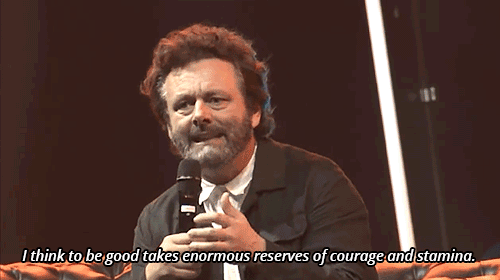
We as a society tend to sort of undervalue goodness. It’s sort of seen as sort of somehow weak and a bit nimby and “oh it’s nice.” And I think to be good takes enormous reserves of courage and stamina. I mean, you have to look the dark in the face to be truly good and to be truly of the light…. The idea that goodness is somehow lesser and less interesting and not as kind of muscular and as passionate and as fierce as evil somehow and darkness, I think is nonsense. The idea of being able to portray an angel, a being of love. I love seeing the things people have put online about angels being ferocious creatures, and I love that. I think that’s a really good representation of what goodness can be, what it should be, I suppose.
I was looking forward to BAMF!Aziraphale all season long, and I think that’s what we got in the end. Remember Neil said that the Job minisode was important for Aziraphale’s story. Remember how Aziraphale sat on that rock and reconciled to himself that he MUST go to Hell, because he lied and thwarted the will of God. He believed that––truly, honestly, with the faith of a child, but the bravery of a soldier.
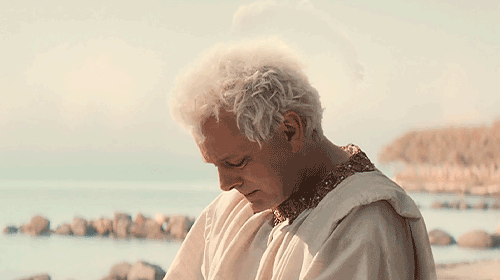
Aziraphale, a being of love with more goodness than all of Heaven combined, believed he needed to walk through the Gates of Hell because it was the Right Thing to do. (Like Job, he didn’t understand his sin but believed he needed to sacrifice his happiness to do the Right Thing.)
That’s why we saw Aziraphale as a soldier this season: the bookshop battle, the halo. But yes, the ending as well.
Because Aziraphale never wanted to go to Heaven, and he never wanted to go there without Crowley.
But it was Crowley who taught him that he could, even SHOULD, act when his moral heart told him something was wrong. While Crowley was willing to run away and let the world burn, it was Aziraphale (in that bandstand at the end of the world) who stood his ground and said No. We can make a difference. We can save everyone.

And Aziraphale knew he could not give up the ace up his sleeve (his position as an angel) to talk to God and make them see the truth in his heart.
I was messed up by Ineffable Bureaucracy (Boxfly) getting their happy ending when our Ineffable Husbands didn’t, but I see now that them running away served to prove something to Aziraphale. (And I am fully convinced that Gabriel and Beelzebub saw the example of the Ineffables at the Not-pocalypse and took inspiration from them for choosing to ditch their respective sides)
But my point is that Aziraphale saw them, and in some ways, they looked like him and Crowley. And he saw how Gabriel, the biggest bully in Heaven, was also like him in a way (a being capable of love) and also just a child when he wasn’t influenced by the poison of Heaven. Muriel, too, wasn’t a bad person. The Metatron also seemed to have grown more flexible with his morality (from Aziraphale's perspective). Like Earth, Heaven was shades of (light?) gray.
Aziraphale is too good an angel not to believe in hope. Or forgiveness (something he’s very good at it).
Aziraphale has been scarred by Heaven all his life. But with the cracks in Heaven’s armor (cracks he and Crowley helped create), Aziraphale is seeing something else. A chance to change them. They did terrible things to him, but he is better than them, and because of Crowley, he feels ready to face them.
(Will it work? Can Heaven change, institutionally? Probably not, but I can't blame Aziraphale for trying.)
At the cafe, the Metatron said something big was coming in the Great Plan. Aziraphale knows how trapped he had felt when he didn’t have God’s ear the first time something huge happened in the Big Plan. He can’t take a chance again to risk the world by not having a foot in the door of Heaven. That’s why we saw individual human deaths (or the threat of death) so much more this season: Elspeth, Wee Morag, Job’s children, the 1940s magician. Aziraphale almost killed a child when he couldn’t get through to God, and he’s not going through that again.
“We could make a difference.” We could save everyone.

Remember what Michael Sheen said about courage and doing good––and having to “look the dark in the face to be truly good.” That’s what happened when Aziraphale was willing to go to Hell for his actions. That’s what happened when he decided he had to go to Heaven, where he had been abused and belittled and made to feel small. He decided to willingly go into the Lion’s Den, to face his abusers and his anxiety, to make them better so that they would not try to destroy the world again.
Him, just one angel. He needed Crowley to be there with him, to help him be brave, to ask the questions that Heaven needed to hear, to tell them God was wrong. Crowley is the inspiration that drives Aziraphale’s change, Crowley is the engine that fuels Aziraphale’s courage.
But then Crowley tells him that going to Heaven is stupid. That they don’t need Heaven. And he’s right. Aziraphale knows he’s right.
Aziraphale doesn’t need Heaven; Heaven needs him. They just don’t know how much they need him, or how much humanity needs him there, too. (If everyone who ran for office was corrupt, how can the system change?)
Terry Pratchett (in the Discworld book, Small Gods) is scathing of God, organized religion, and the corrupt people religion empowers, but he is sympathetic to the individual who has real, pure faith and a good heart. In fact, the everyman protagonist of Small Gods is a better person than the god he serves, and in the end, he ends up changing the church to be better, more open-minded, and more humanist than god could ever do alone.
Aziraphale is willing to go to the darkest places to do the Right Thing, and Heaven is no exception. When Crowley says that Heaven is toxic, that’s exactly why Aziraphale knows he needs to go there. “You’re exactly is different from my exactly.”
____
In the aftermath of Trump's election in the US, Brexit happened in 2018. Michael Sheen felt compelled to figure out what was going on in his country after this shock. But he was living in Los Angeles with Sarah Silverman at the time, and she also wanted to become more politically active in the US.
Sheen: “I felt a responsibility to do something, but it [meant] coming back [to Britain] – which was difficult for us, because we were very important to each other. But we both acknowledge that each of us had to do what we needed to do.” In the end, they split up and Michael moved back to the UK.
Sometimes doing the Right Thing means sacrificing your own happiness. Sometimes it means going to Hell. Sometimes it means going to Heaven. Sometimes it means losing a relationship.
And that’s why what happened in the end was so difficult for Aziraphale. Because he loves Crowley desperately. He wants to be together. He wanted that kiss for thousands of years. He knows that taking command of Heaven means they would never again have to bow to the demands of a God they couldn’t understand, or run from a Hell who still came after them. They could change the rules of the game.
And he’s still going to do that. But it hurts him that he has to do that alone.
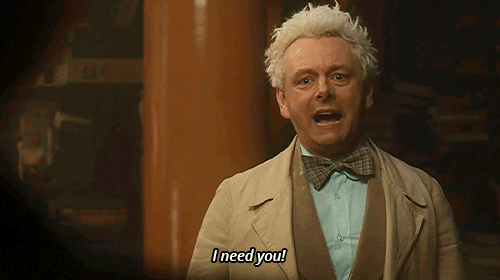
#good omens#good omens 2#ineffable husbands#it's kinda like capt america: civil war#with Azi as Tony Stark: traumatized and trying to do the right thing#and Crowley being Steve Rogers: fuck the establishment let's go rogue#gos2spoilers#good omens meta#good omens 2 meta#go s2#michael sheen#go s2 meta#go meta#*mine#*mymeta#ineffables husbands#ineffable soulmates#*mybest
11K notes
·
View notes
Text
Anybody else ever lie awake and think about how they placed plant photographs in the kitchen behind David Tennant, and removed the background behind Michael Sheen for the last shot of Staged so that it would look exactly like the last shot of Good Omens? Just me? Okay.

Good Omens Season 2, Episode 6 (2023)

Staged Season 3, Episode 6 (2022)
-------------------------------------
Thanks for rewatching it with me @ghstptats @embracing-the-ineffable @thebluestgreen! Xx
#good omens meta#good omens 2#art director talks good omens#go season 2#go meta#good omens season 2#good omens#staged#david and michael#bbc staged#michael sheen#david tennant
3K notes
·
View notes
Text
Foods to eat on a ketogenic diet

If you're considering starting a ketogenic diet, one of the most important things to know is what you should and shouldn't be eating. The goal of the ketogenic diet is to enter a state of ketosis, which is when your body switches from burning carbohydrates for energy to burning fat. In order to do this, you need to drastically reduce your carbohydrate intake and increase your fat intake. Here are some foods to focus on when following a ketogenic diet:1. Meat: Beef, chicken, pork, lamb, and other types of meat are all great sources of protein and healthy fats.2. Fish: Fatty fish like salmon, mackerel, and sardines are rich in omega-3

#pluralistic#victim blaming#fraud#going meta#douglas rushkoff#ad-tech#local search#wix#amex#thai food#business#chokepoint capitalism#platform lawyers
0 notes
Text
I just realised we’ve all just assumed that Xie Lian looks at the wraith butterflies and assumes they are beautiful and ethereal because they are soft with him and not weapons but I think we are forgetting this guys special interest is swords and weapons in general he could probably sense just how deadly they were and that only made them more beautiful to him.
#I love him he’s a freak he would see flying knives and go prettyyyyy#tgcf#tian guan ci fu#xie lian#hualian#Xie Lian meta#tgcf meta#zee rambles
3K notes
·
View notes
Text
the whole "it's boring to have the characters end up in heaven at the end" like, no it's not a boring ending and it's not what happened. they aren't in heaven, they are back inside of jughead's narration. they're teenagers forever. they're inside the story again. this whole season has had each and every character fighting their way out of the narrative they have been trapped inside, that jughead trapped them in, let them finally achieve that and gain their freedom only to die and end up back in the narrative again. they are back where they started.
7K notes
·
View notes
Text
Is that. A Nightingale????
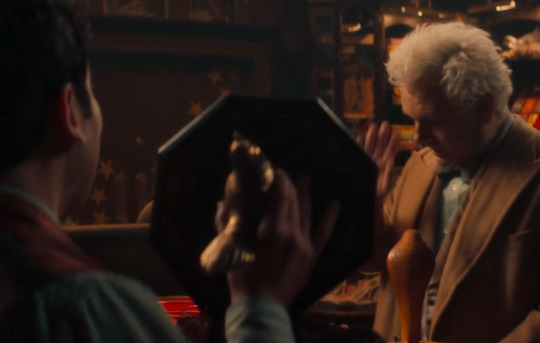
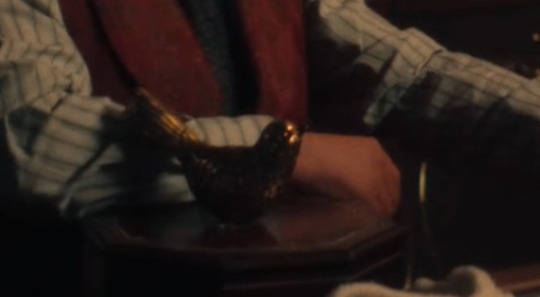
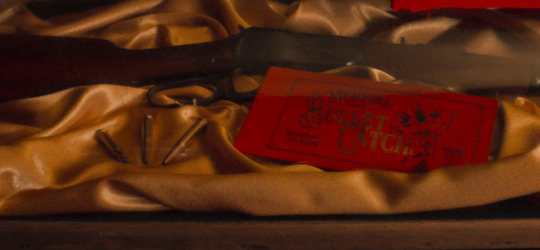
"I'm afraid that's not for you, sir. What about this?", Goldstone asks while showing Aziraphale a case with a bronze nightingale as a handle. "No, no, no, it's alright. I've found my showstopper.", Aziraphale answers, looking at the magic bullet catch.
Is Aziraphale actually choosing a RIFLE over a Nightingale in this scene. I am losing it.
Not only is he choosing danger over the safe option, he's choosing a weapon. HE IS CHOOSING TO FIGHT.
And, he is also choosing to do this with Crowley (even though Crowley is reluctant) and he is choosing to trust him. He's not even considering the safe option.
#good omens#crowley#aziraphale#ineffable husbands#good omens 2#good omens spoilers#good omens theory#good omens thoughts#good omens meta#not art#sorry this is not an art post but I had to scream these thougts out into the void#im going up the walls
3K notes
·
View notes